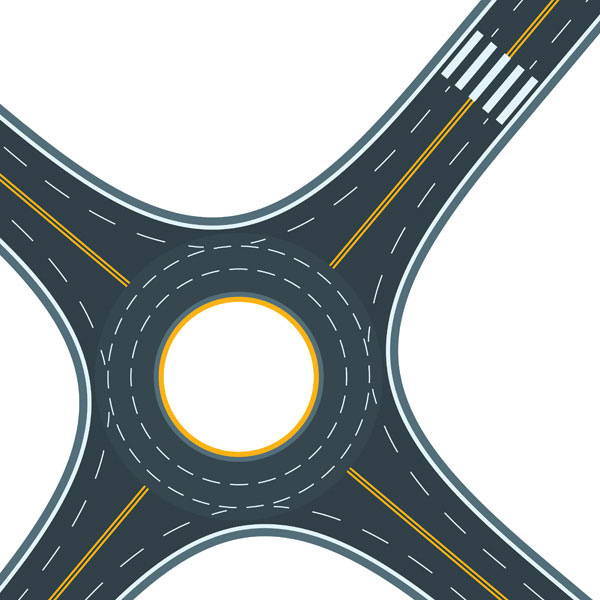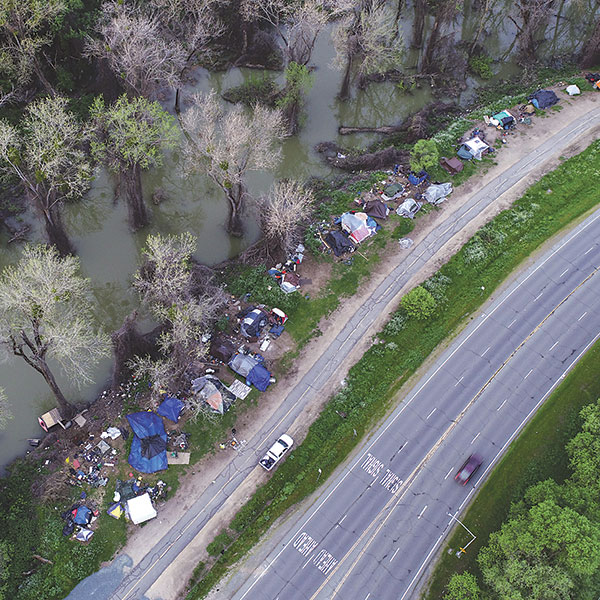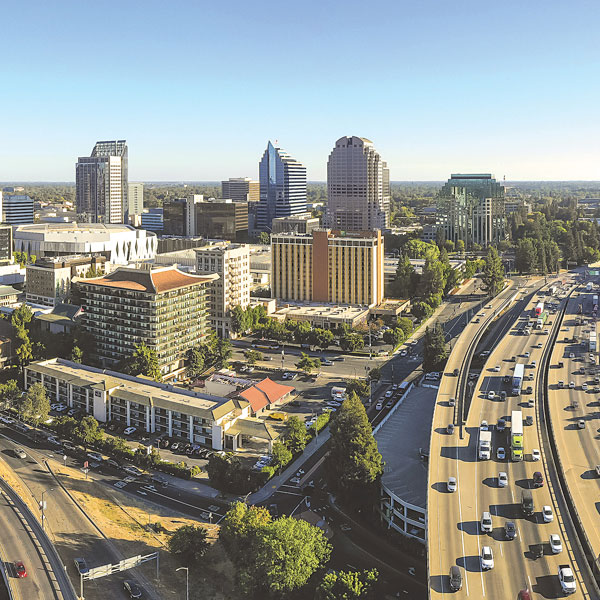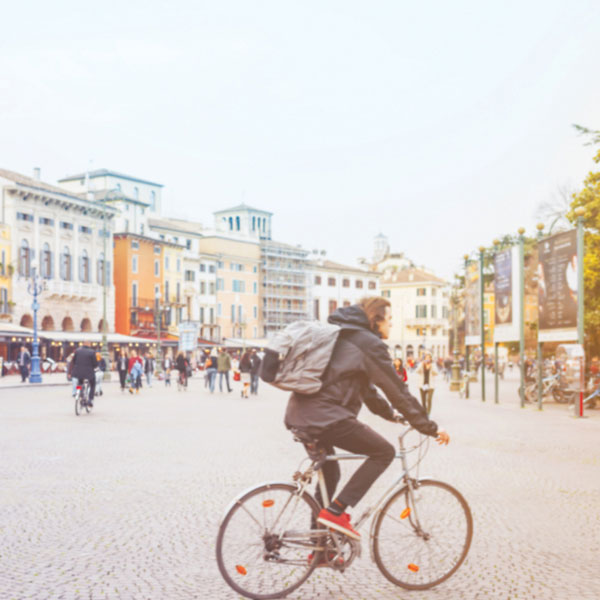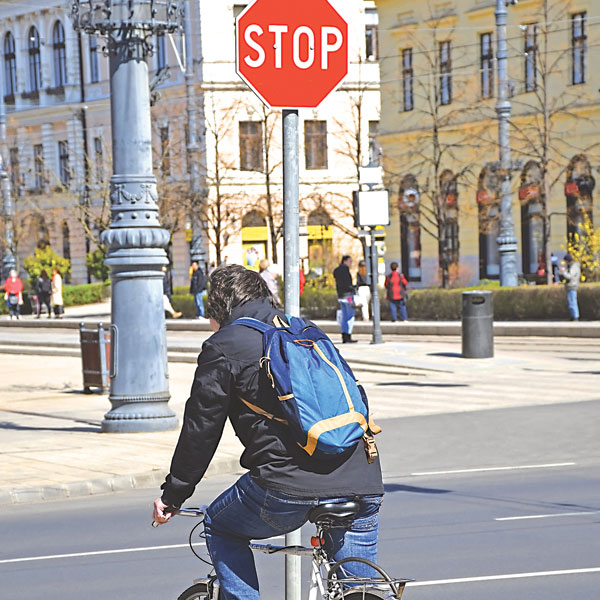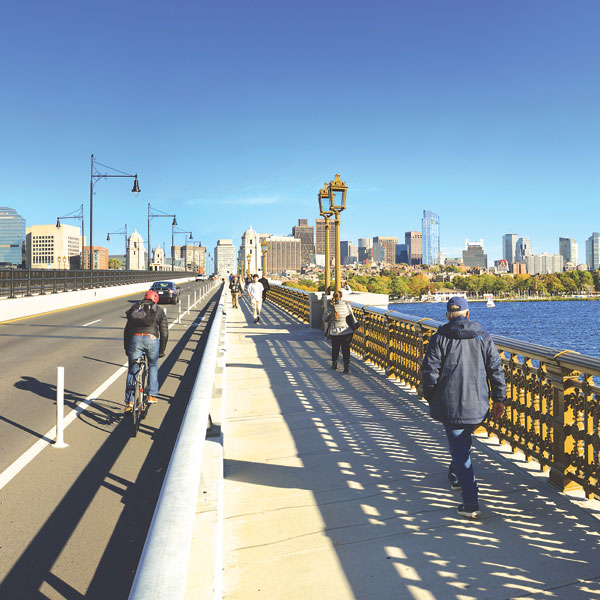Getting There
Keep It Moving
Street intersections are dangerous. Each day, more than 20 people die in intersection collisions in the United States.
Safety is why European nations, Australia and New Zealand turned to roundabouts instead of signals or stop-controlled intersections. With far fewer contact points where vehicles (and pedestrians) cross paths, roundabouts reduce fatal and injury crashes by 80 percent, Federal Highway Administration data show.
Modern roundabouts aren’t the same as Midtown’s small traffic circles, which have stop signs on some approaches. A fundamental difference is that drivers must yield to traffic already in a roundabout.
Paradise Lost
I’ve biked in the American River Parkway thousands of times over the last 50 years. The rides bring physical fitness and spiritual uplift. Seeing the river, being in nature and spying turkeys, heron, deer, coyotes and the occasional rattlesnake are euphoric.
Especially during the pandemic era, the rides are a great antidote to depression and the cooped-up regimens of lockdowns.
More recently, the rides have brought heartache. It hurts to see century old trees blackened and killed by fires. It’s sad to see shanties and tents crowded together surrounded by trash.
People have camped in the parkway for decades. It’s not a new problem. But the number of people and the visibility of camps have never been greater.
Don’t Rush
Most commuters hate driving during rush hours. Nonproductive hours trapped in a car are emotionally draining and have physical consequences. Negative impacts include stress, exposure to pollutants, reduced sleep and less opportunity for exercise. The traffic glut not only affects us personally, it degrades the environment.
Before the pandemic, rush hours were hellish in Sacramento. Transportation planners felt compelled to design roads with capacity to handle the peaks. Expensive arterials, freeways and interchanges were built, but underutilized for most of the day. Whenever new construction resulted in excess capacity, motorists soon noticed and filled the new roads up again—a costly cycle without end.
Place To Be
What makes a great place? In what we hope are the waning days of the pandemic, people are traveling more. Many are headed to major public spaces around the country and the world. Those places promote social interaction, health, happiness and a sense of wellbeing.
I’ve had the privilege of being in some of the world’s greatest spaces: St. Mark’s Square in Venice, Luxembourg Garden in Paris, Las Ramblas in Barcelona, Spanish Steps in Rome, High Line in New York, French Quarter in New Orleans and Grand-Place in Brussels. Can we have great places in Sacramento?
Full Stop, Maybe
Everyone knows bicyclists are scofflaws because they incessantly run stop signs. For some observers, this behavior merely puts bike riders in a bad light. For others, it really gets their goat. They vilify, and perhaps even hate, bicyclists because of it.
I try to obey laws. Heck, I even annoy my wife by driving at the speed limit. But there is one law I routinely ignore—coming to a complete stop at stop signs when I bike. The requirement to do so is simply bad law. Stop signs were invented for vehicles.
Moving Forward
Moving Forward Biden policies may help us get around By Walt Seifert March 2021 The federal government’s approach to transportation will be far different under President Biden than under former President Trump. How much of that new approach is...

